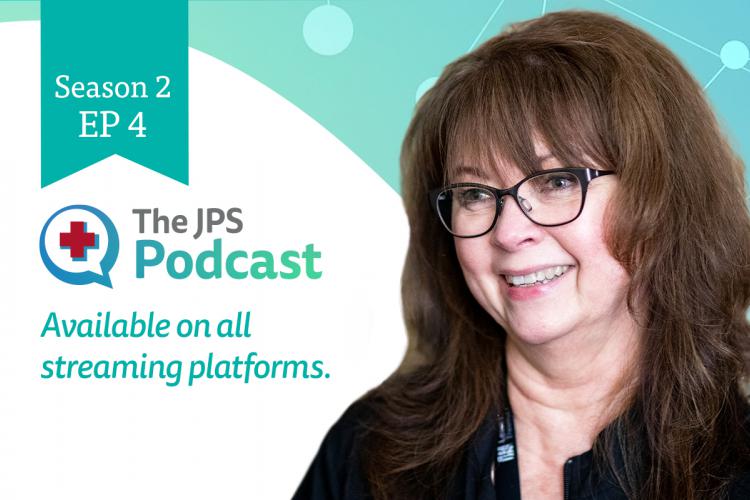
The main reasons people endure Intimate Partner Violence are because they either don’t realize how much danger they’re in or they don’t feel like they have a way out.
Mary Ann Contreras, Violence and Injury Prevention Manager in Trauma Services at JPS Health Network, said screening systems help identify relationship abuse even when the victim might not recognize what’s happening to them.
“We do a lot of screenings within our system, and one of those screenings, we call it the HITS tool,” Contreras said. “That stands for Hurt, Insult, Threaten and Scream. It asks simple questions, just four of them, but it helps to normalize the violence and the abuse. People may not understand the relationship they’re in is not normal. They may not understand that it’s dangerous to their life or maybe they’re embarrassed. These questions cut through the emotion and the stigma and give us the answers we need.”
According to Manza Agovi, assistant member JPS Center for Outcomes Research. People who endure intimate partner violence suffer the risk of being seriously injured or even killed. Mental anguish can lead to physical health problems. Sexually transmitted diseases including HIV are also included in the risks.
“Don’t be a bystander if you think someone is being abused,” Agovi said. “And this goes for both males and females because males are abused, too. Do or say something. That can actually save a life.”
Trying to convince people to leave relationships is not what we’re here to do. We’re trying to screen them and then we very frankly let them know what their score is and what their risks are.
Agovi said in 2019 Tarrant County had eight Intimate Partner Violence deaths. So far in 2020, aggravated by the tension of COVID, we’ve already had 16 with two and a half months to go.
It’s not about convincing people to leave their partners. Violence prevention is about resources, Contreras said.
“Trying to convince people to leave relationships is not what we’re here to do. We’re trying to screen them and then we very frankly let them know what their score is and what their risks are,” Contreras said. “You have to respect their decisions. If they decide to stay, they know where they can come for help. That’s something we’ve been building a lot of trust with. We have resources. We know community partners. They at least know they have a place to go.”
One of those resources is SafeHaven.
“It’s a sheltering organization,” Contreras said. “They have done a phenomenal job. If someone is in danger and they need a place to go, there is a place for them to go.”
For more information about SafeHaven and other Intimate Partner Violence resources, call 1-877-701-7233 or go to: https://www.safehaventc.org/
Listen to The JPS Podcast on Intimate Partner Violence at: https://jpshealthnetwork.libsyn.com/
